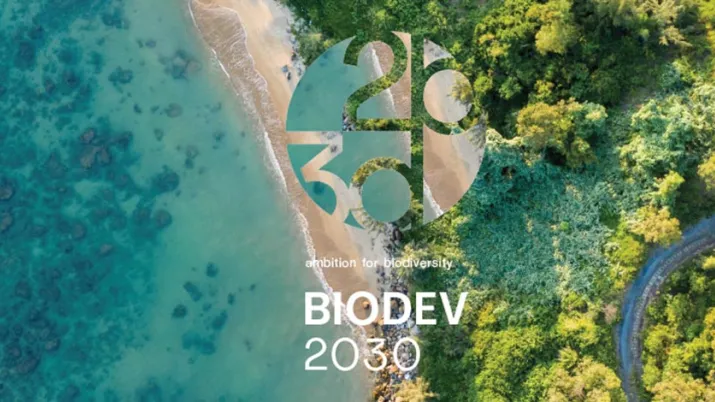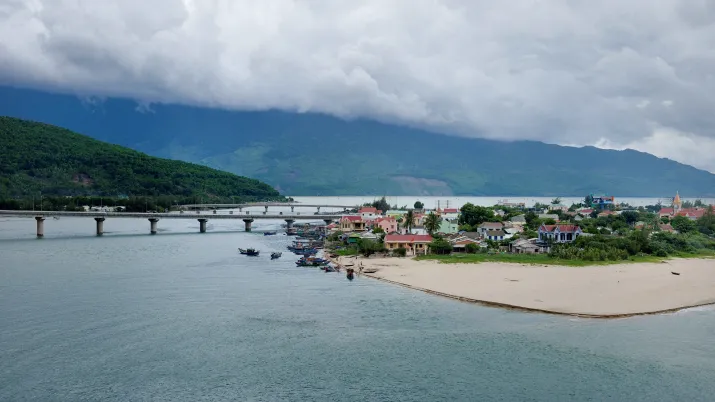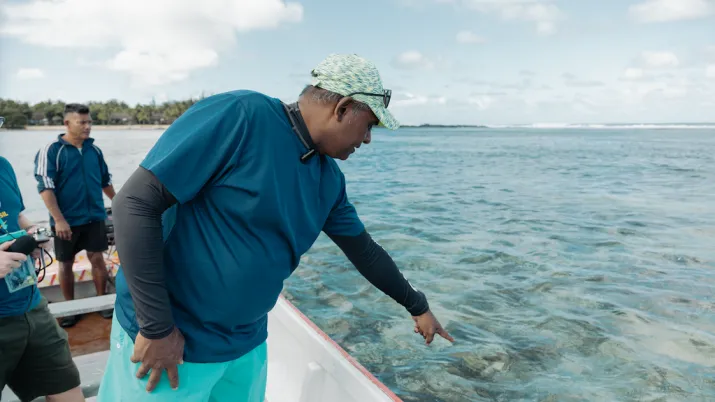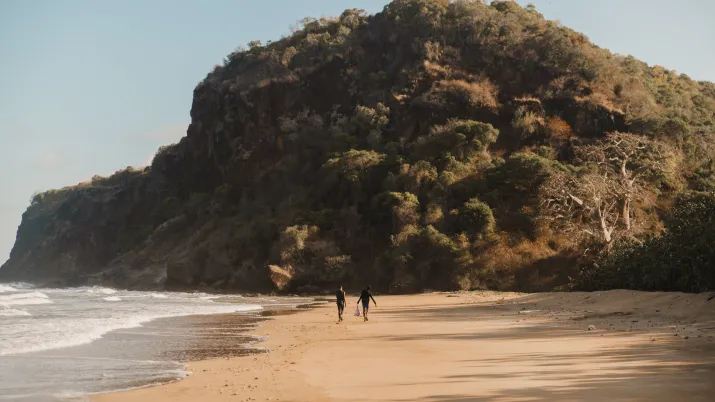Share the page
Mainstreaming biodiversity into development: Lessons from the BIODEV2030 project
Published on
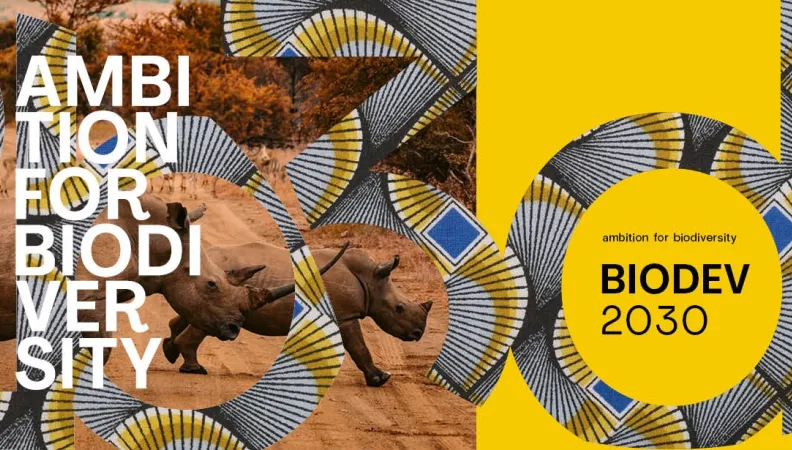
Under the BIODEV2030 project implemented with AFD financing, Expertise France is helping the governments of 16 countries mainstream biodiversity into sectors of economic activity with the highest impacts. To mark the One Forest Summit organised in Libreville (Gabon), this article presents the results of this project with a focus on what it has developed. The results and lessons learned from three years of implementation will be presented on 22 March during a webinar, where it will be possible to discuss with operators who have experimented with this approach.
The health of the ecosystems on which we and all other species depend is deteriorating more rapidly than ever. According to the latest report by the IPBES (the IPCC for Biodiversity), the goals for conserving and sustainably using nature cannot be met by the current trajectories. In addition to weakening livelihoods, food security, health and the quality of life around the world, this situation also poses economic and financial risks. Biodiversity needs to be mainstreamed into each decision-making process and each sector of activity that directly or indirectly contributes to its loss. Profound changes are required, especially at the economic level.
The BIODEV2030 project is financed by AFD, coordinated by Expertise France and implemented by IUCN and WWF-France in 16 African, South American and Asian countries with different economic, social and political situations and varying characteristics in terms of biodiversity and the threats to it. However, all these countries have developing economies where a high proportion of GDP comes from primary sectors (over 20% on average in the 16 countries), which have the greatest impacts on biodiversity.
Between 2019 and 2022, these countries experimented with the BIODEV2030 method for mainstreaming biodiversity into at least two economic sectors identified as priorities for the biodiversity and development of the country. This method is based on a dialogue involving all stakeholders in society through multi-stakeholder platforms. The objective is to come up with voluntary sectoral commitments to reduce pressure on biodiversity, based on scientifically-grounded evidence.
“Through BIODEV2030, biodiversity feeds into economic sectors, if only by objectifying the pressures from sectors. This is necessary in order to initiate the dialogue”, says Rantonirina Rakotoaridera, Convention on Biological Diversity focal point of Madagascar.
For example, in Vietnam, forestry plantation companies have pledged to no longer encroach on natural forests. They will also convert into forest plantations with sustainability certifications (such as FSC) and plant timber forests with long cycles to better protect ecosystems.
Strengths of the BIODEV2030 method
The application of the BIODEV2030 method makes it possible to prioritise the action to be taken, depending on the socioeconomic and environmental situations. Based on a scientific assessment of the status of biodiversity, the stakeholders from each country have selected the sectors of activity that need to be involved. A second detailed analysis of the sectors selected has described their socioeconomic, political and environmental characteristics and identified productive practices that have a positive or negative impact on biodiversity. These data have informed the multi-stakeholder dialogues and helped define a series of actions to be implemented by private stakeholders (as well as support measures under the responsibility of the government or financial institutions), in order to reduce their pressure on biodiversity.
The strength of this method lies in the fact that it can build and coordinate dialogue platforms. They provide forums for exchanges between private stakeholders representing economic sectors of activity (agriculture, forestry, fishing…), public stakeholders (including ministries of the environment and sectoral ministries) and civil society (associations, local communities). These platforms have raised the awareness of all the stakeholders about biodiversity and enabled collective reflection on the changes in practices required.
A project conducive to capitalisation on experience
The pilot nature of BIODEV2030 makes it a project conducive to capitalisation on experience. This capitalisation using the BIODEV2030 method has been conducted with the aim of feeding into the reflection and giving the keys to success to other project initiators, or institutions wishing to develop a similar biodiversity mainstreaming approach.
The lessons are presented in a collection of practical guides. They have been designed to provide project initiators with a step-by-step guide on how to implement each component of the BIODEV2030 method, giving details of the necessary steps and, especially, a number of recommendations.
The direct testimonies of the national biodiversity focal points, private stakeholders and representatives from the financial sector who took part in the multi-stakeholder dialogue illustrate the reality of the benefits to the stakeholders.
“During the [dialogue] workshops, we understood that if we’re informed, we can consider and pay attention [to biodiversity] when we’re logging. And we do this through ‘exploitable diameters’. They must be respected. You mustn’t destroy crop trees when you need timber. When you destroy, it’s abusive deforestation.” Bertin Akouta, representative of the Federation of Economic Actors in the Timber & Forest Sector in Benin.
“We saw BIODEV2030 as an opportunity. We jumped at it! We very much appreciate this project, as it decompartmentalises stakeholders and sectors and allows them to dialogue. It unifies and brings together stakeholders, informs them, and allows them to organise action together and conserve biodiversity.” Amadé Ouedraogo, CBD point focal of Burkina Faso.
“There’s hope behind this project, as it creates the means to get stakeholders involved at all levels, in all sectors, so that each at their own level, whether they are direct or indirect stakeholders, can have the commitment to the preservation and sustainable management of biodiversity as a guiding principle.” Mikaelou Dicko – Project Officer at the Association for the Promotion of Livestock Production in the Sahel and the Savannah.
learn more
BIODEV2030
BIODEV2030 is helping 16 pilot countries adopt and ensure the sustainability of sector-based commitments to halt the loss of biodiversity and its consequences over the next decade.
- When ?
-
2023 - 2026
Status
Ongoing
- Location
- Gabon, Fiji, Ethiopia, Congo, Cameroon, Benin
- Financing amount
- 10 M € €
further reading
In Southeast Asia, providing long-term support to the circular economy, health and security
Published on October 6, 2025
Marine areas of island territories, central to the challenges of preserving the oceans
Published on June 9, 2025

